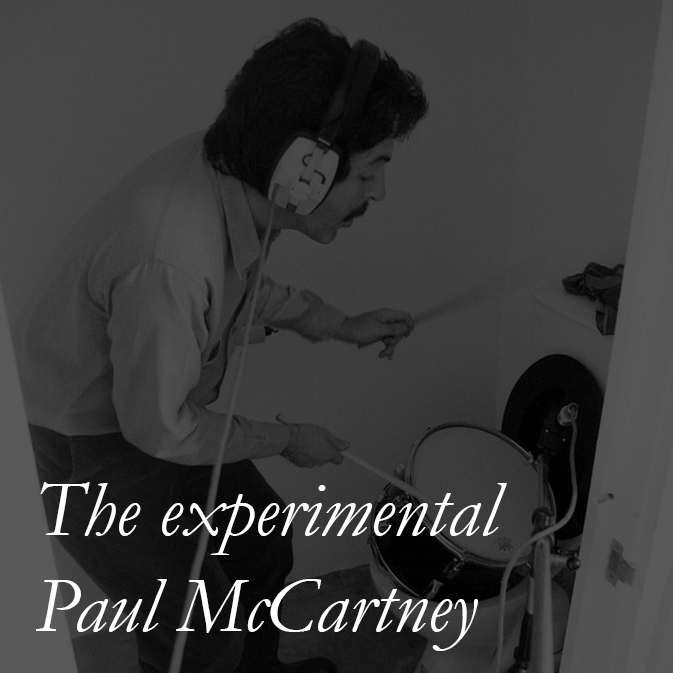
Thursday, September 15, 1966
Paul McCartney attends a performance of experimental music in London
Last updated on May 9, 2024

Thursday, September 15, 1966
Last updated on May 9, 2024
Location: Royal College of Art, Knightsbridge, London, UK
Interview Sep 10, 1966 • Paul McCartney interview for Disc And Music Echo
Article Sep 13, 1966 • Paul McCartney and Ringo Starr receive Melody Maker awards on behalf of The Beatles
Article Sep 15, 1966 • Paul McCartney attends a performance of experimental music in London
Article Sep 16, 1966 • Paul McCartney meets John Lennon and Brian Epstein in Paris
Interview Sep 18, 1966 • Paul McCartney interview for The Sunday Times
On this evening, Paul McCartney attended a performance of experimental music, by the group AMM (featuring composer Cornelius Cardew), at the Royal College of Art in London. The audience, which numbered fewer than 20 people, was invited to participate, and Paul made occasional sounds, tapping his beer mug with a pencil and scraping at a radiator with a coin.
The whole thing was about listening to ambient sound. Cardew was a pupil of John Cage, so the whole point was that any sound could be meaningful if you pay attention to it – paying close attention to the sound of traffic outside the window, people’s breathing and people shuffling their feet and then making interventions by banging on the piano or winding up a little wind-up toy.
Barry Miles – From MOJO, November 2022
[…] Far better was [AMM’s] weekly sound workshop held in a basement room of the Royal College of Art, where the audience sat on the floor and a musical piece could last for hours. Sue and I took Paul McCartney to one, early in 1966, to hear John Cage’s theories of random sound put into practice. At this concert the closest Cardew got to playing the piano was to tap its leg with a small piece of wood. Paul joined in by running a penny along the coils of the old-fashioned steam radiator and, after the intermission, used the penny to carefully tap his pint glass beer mug. Afterwards, commenting on the performance, he said, ‘You don’t have to like something to be influenced by it’, but he told the organiser Victor Schonfeld, ‘It went on too long.’ Cage’s influence was to show itself in the Beatles’ music later in a number of subde ways.
Barry Miles – From “In The Sixties“, 2003
About the group AMM, from Wikipedia:
AMM is a British free improvisation group that was founded in London, England, in 1965. The group was initially composed of Keith Rowe on guitar, Lou Gare on saxophone, and Eddie Prévost on drums. The three men shared an interest in exploring music beyond the boundaries of conventional jazz, as in free jazz and free improvisation. AMM never achieved widespread popularity, but have been influential in improvised music. Most of their albums have been released by Matchless Recordings, which is run by Eddie Prévost. In a 2001 interview, Keith Rowe was asked if “AMM” was an abbreviation. He replied, “The letters AMM stand for something, but as you probably know it’s a secret!”
About Cornelius Cardew, from Wikipedia:
Cornelius Cardew (7 May 1936 – 13 December 1981) was an English experimental music composer, and founder (with Howard Skempton and Michael Parsons) of the Scratch Orchestra, an experimental performing ensemble. He later rejected experimental music, explaining why he had “discontinued composing in an avantgarde idiom” in his own programme notes to his Piano Album 1973. […]
In 1966, Cardew joined the free improvisation group AMM as cellist and pianist. AMM had formed the previous year and included English jazz musicians Lou Gare, Eddie Prévost, Keith Rowe, and one of his first students at the Royal Academy Christopher Hobbs. Performing with the group allowed Cardew to explore music in a completely democratic environment, freely improvising without recourse to scores. […]
The Beatles Diary Volume 1: The Beatles Years
"With greatly expanded text, this is the most revealing and frank personal 30-year chronicle of the group ever written. Insider Barry Miles covers the Beatles story from childhood to the break-up of the group."
We owe a lot to Barry Miles for the creation of those pages, but you really have to buy this book to get all the details - a day to day chronology of what happened to the four Beatles during the Beatles years!
If we modestly consider the Paul McCartney Project to be the premier online resource for all things Paul McCartney, it is undeniable that The Beatles Bible stands as the definitive online site dedicated to the Beatles. While there is some overlap in content between the two sites, they differ significantly in their approach.

Notice any inaccuracies on this page? Have additional insights or ideas for new content? Or just want to share your thoughts? We value your feedback! Please use the form below to get in touch with us.